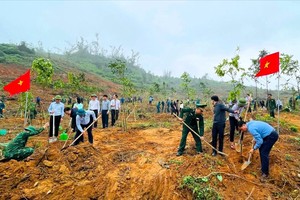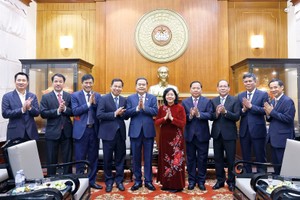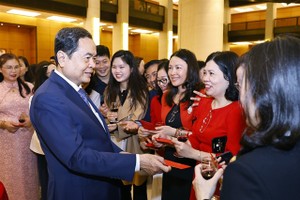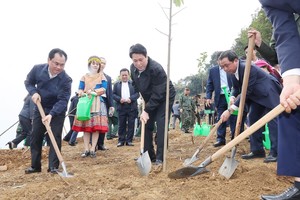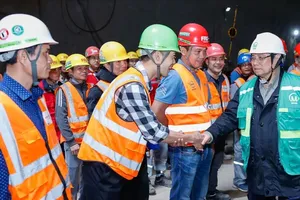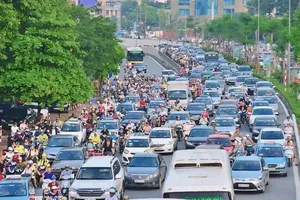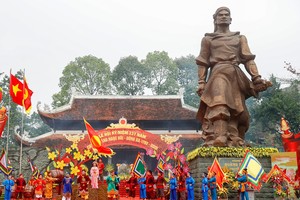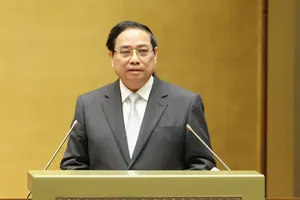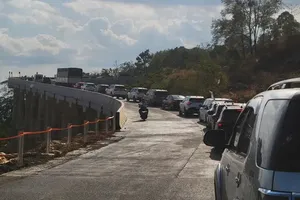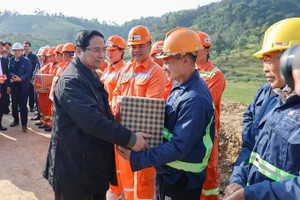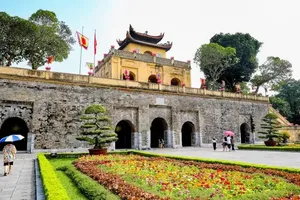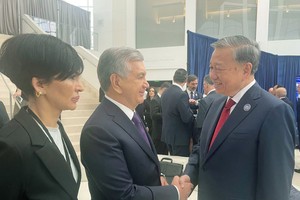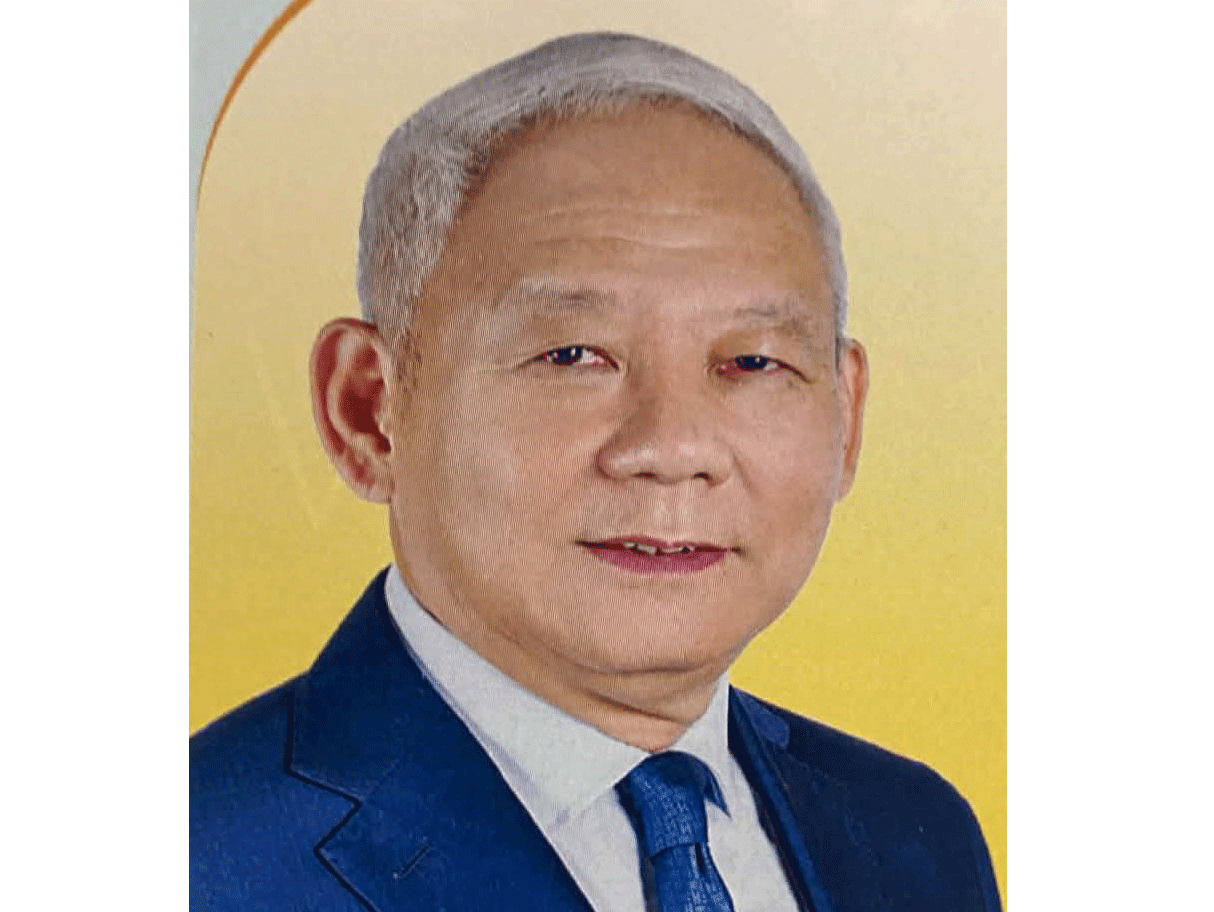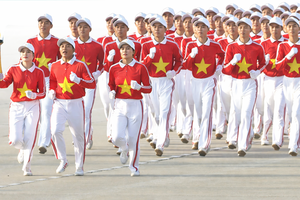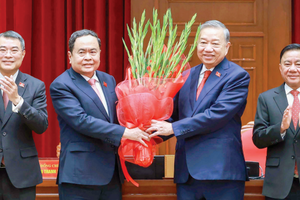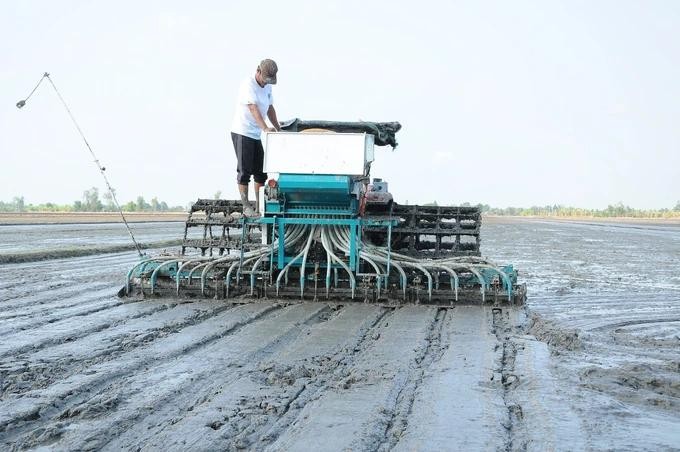
This morning, the Vietnam Rice Industry Association convened a forum in Can Tho City to discuss strategies for replicating successful pilot models from the project aimed at the sustainable development of one million hectares of high-quality, low-emission rice cultivation linked to green growth in the Mekong Delta by 2030.
While delivering the opening remarks at the event, Vice Chairman Nguyen Ngoc He of the Can Tho City People's Committee stated that Can Tho City, as well as the Mekong Delta provinces, acknowledge the project's importance to the Mekong Delta's rice granary.
This marks the inaugural project overseen directly by the Prime Minister. The initiative holds international significance and attracts interest from numerous countries globally.
Can Tho City is concentrating on executing essential strategies, including the training of community extension personnel and farmers in accordance with the project's production processes.
Additionally, it aims to establish and replicate production models that integrate high-tech applications and digital transformation. Concurrently, efforts are being made to create connections within the rice value chain, linking farmers, cooperatives, and enterprises.
At the forum, Deputy Director Le Thanh Tung of the Department of Crop Production under the Ministry of Agriculture and Rural Development reviewed the results of seven pilot models that implemented the project in five provinces and cities including Dong Thap, Kien Giang, Can Tho, Soc Trang, and Tra Vinh representing three ecological regions (upper, lower, and middle Mekong Delta).
Kien Giang specifically has two models which are rice and rice-shrimp. These pilot models have initially produced great efficiency, higher profit for farmers, and lower emissions in rice production. When farmers actively participate with the assistance of businesses and authorities at all levels, exhibiting numerous good signals, this is seen as a desirable direction.
Forum participants emphasized the imperative of compiling a comprehensive dataset encompassing soil conditions, plant nutrition, infrastructure, and straw management to optimize rice farming systems and promote high-quality, low-emission rice production. They noted that numerous provinces currently rely on basic quantitative data, which impedes efficient investment allocation. To address this, universities and research institutes should actively participate in the project to collaboratively develop a comprehensive and accurate database.
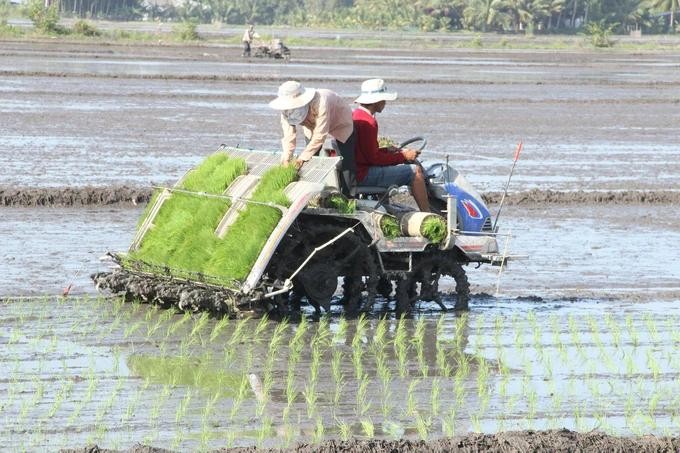
Furthermore, it is essential that technology and methodologies are tailored to the specific conditions of each specialized region. This approach should encourage the development of digital applications that facilitate connections between farmers and businesses, establish transparent and coherent business models and plans, and foster trust from financial institutions to enable easier access to loans.
Deputy Director Le Thanh Tung highlighted that Vietnamese rice matches the quality of any country's rice, but its value remains underappreciated. Vietnam currently has an emission level of 0.9 percent, which is higher than that of other Southeast Asian countries like the Philippines and Thailand. He noted that production processes still lack synchronization and mutual support, hindering the enhancement of the rice industry's value.
It is worth noting that the Mekong Delta has made progress in mechanization. Specifically, with 1.7 million hectares of rice in the Mekong Delta, there were only 2 combine harvesters in 2006. After 6 years, there were up to 12,000 combine harvesters, showing a very rapid growth rate.
Mr. Le Thanh Tung asserted that with the presence of suitable science and technology, development will inherently progress swiftly. The emphasis lies on training and the transfer of technology, which are essential for facilitating the implementation of the Project.
The project's objectives will continue to include the replication of the model, focusing on value chains, ecological databases, technology advancement, behavioral transformation, and the enhancement of capacities.
